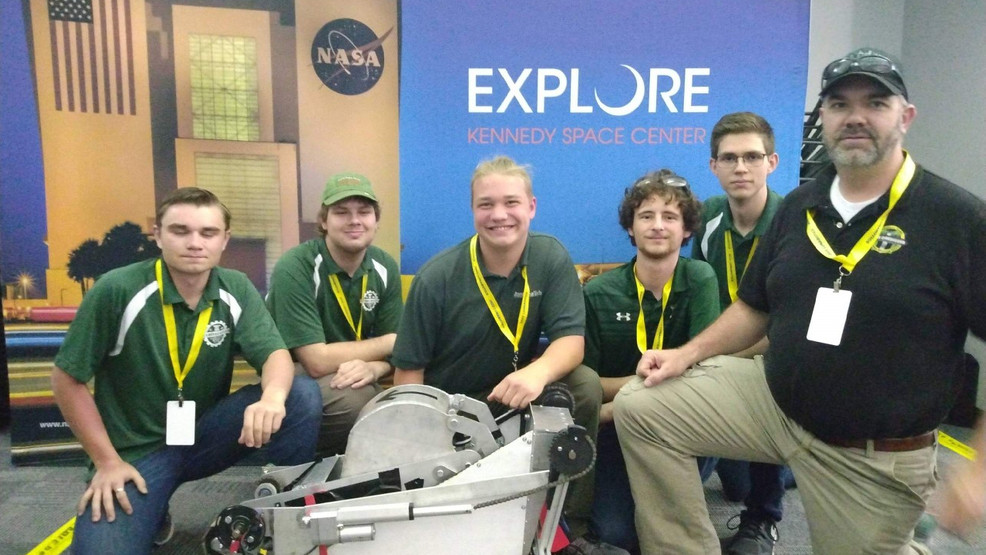Robotic Mining Club takes top prize at NASA Lunabotics Competition in Cape Canaveral

Robotic Mining Club takes top prize at NASA Lunabotics Competition in Cape Canaveral
Montana Technological University’s Robotic Mining Club recently won the top mining award at the NASA Lunabotics Competition at the Kennedy Space Center. The competition saw 38 universities competing for the top honors.
The competition involved designing and building a robot to dig through a simulated lunar surface to deposit as much gravel simulant as possible in two 15-minute runs. Two teams, Montana Technological University and
the University of Alabama, qualified for the on-site mining award. Montana Tech took home the top prize.
“Despite our on-site issues, we were able to eke out the win and take home the top honor,” said advisor Dr. Bryce Hill, of the Electrical Engineering Department.
Montana Tech sent five students to the competition in Cape Canaveral. Each team was given two competition runs. During Montana Tech’s first run, tragedy struck when the robot, named “She’s A BUTTE,” failed to move due to a communication error.
On the second run, the robot performed admirably and deposited significant amounts of lunar gravel into the deposit area. “Even with the communication issues, the robot drove beautifully,” Hill said.
The club was one of only four or five teams to be able to deposit the gravel successfully. To qualify, teams had to deposit at least a kilogram of the gravel in the depiction sieve. Official numbers are still pending for each group.
The team consisted of approximately ten dedicated students who worked diligently on the robot. The student who attended were Michael Price of Medford, Oregon (Mechanical Engineering), Garrett Pruttis of Zurich (Computer Science), Cody McCartney of Corvallis (Computer Science),
Dustin Marquardt of Trout Creek (Electrical Engineering), and Josh McAdams, a prospective freshman from Butte. Others included Ravyn Goodwin, Jamison Ehlers, and former student Justin Bak.
The award comes with a $3,000 scholarship for the team from NASA.